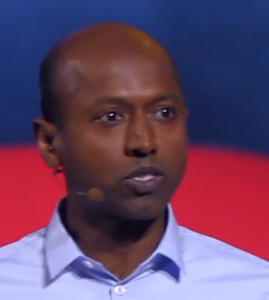T echnology – it’s not for just the rich anymore. Ravi Nadjou’s TED talk on Creative problem-solving has some really innovative and very low-cost tools that we, in rural America, can use right now to get our small farms and business in the red. The two that I found quite fascinating are gThrive and Be-Bound.
echnology – it’s not for just the rich anymore. Ravi Nadjou’s TED talk on Creative problem-solving has some really innovative and very low-cost tools that we, in rural America, can use right now to get our small farms and business in the red. The two that I found quite fascinating are gThrive and Be-Bound.
gThrive is a system of soil monitoring that uses basic technology to provide an amazing amount of real-time data, at a much lower cost, to farmers. It let’s you know the nutrient levels of your soil so that you can properly correct for them, instead of over fertilizing. In drought-stricken areas, understanding the moisture content of your soils could help you conserve water. Where I live, the fields are saturated with flood waters for most of the winter. Knowing when the soils are dry enough for proper germination is critical to ensuring that seed is not wasted on soggy soil.
Be-Bound frees your phone (phablet or cell-enabled tablet) from those cell dead zones. Essentially, it lets you use a number of applications, such as Twitter, from almost anywhere in the world, even when there is very little cell or Wi-Fi service. What this means for those who travel, is that you won’t necessarily have to use Verizon to get in touch with people in rural places. You may be able to go with a $35 plan and add Be-Bound. (That’s my plan, anyway.) Calls won’t work through it but texting, mail, and Twitter do. It’s currently only available for Android phones, but they are developing it for other platforms. It’s available at the Google Play store.
